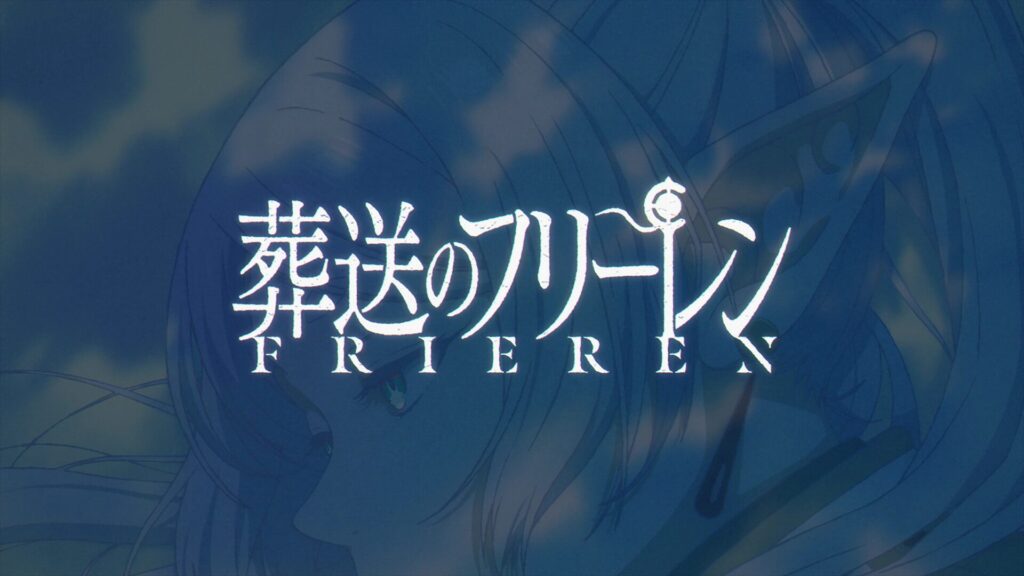
セリフ #6 – 仲間から託された宝物
君にとっては軽い気持ちで預けたものかもしれないけど、僕にとっては大切な仲間から預かった大事なものなんだ。いつか君にこうして返すべきものだったんだそんなたいそうなものじゃないんだけどな
I realize you may not have thought much of leaving your ominous prize under my care,
but in my eyes, this horn was a treasure entrusted to me by a dear friend for safekeeping.
I had to keep it in perfect condition until I could return it to you.
It’s truly nothing greater than a convenient ingredient.
🗣️ 語彙解説
ominous /ˈɑːmɪnəs/(形容詞):不吉な、縁起の悪い
→ 何か悪いことが起こりそうな雰囲気を持つときに使われる表現。
prize /praɪz/(名詞):賞品、貴重なもの
→ この文脈では「大事なもの」「戦利品」といったニュアンス。
entrust /ɪnˈtrʌst/(動詞):託す、預ける
→ 信頼して物を預けること。目的語として人や物が続く。
safekeeping /ˈseɪfˌkiːpɪŋ/(名詞):保管、預かり
→ 安全に保管すること。trustやcareと一緒に使われやすい。
ingredient /ɪnˈɡriːdiənt/(名詞):材料、成分
→ 調理や魔法の素材など、何かを構成する要素を指す。
📘 文法・構文・訳しにくい点の解説
I realize you may not have thought much of leaving your ominous prize under my care
“may not have thought” は「~とはあまり思っていなかったかもしれない」の過去の推量。”of leaving ~” は “think of” の目的語で動名詞句。
but in my eyes, this horn was a treasure entrusted to me by a dear friend for safekeeping
“in my eyes” は「私の目から見れば」。”entrusted to me by a dear friend” は受け身の過去分詞構文で、「大切な仲間によって預けられた」。
I had to keep it in perfect condition until I could return it to you
“had to” は過去の義務。”until I could return it” は「返せるようになるまで」という時間の副詞節。
It’s truly nothing greater than a convenient ingredient
“nothing greater than ~” は「~以上のものではない」という比較構文。控えめな表現で価値を下げて言っている。
📘 スラッシュリーディング訳
I realize you may not have thought much /
軽い気持ちで預けたものかもしれないけど、
of leaving your ominous prize under my care, /
僕に預けることを大したことだと思っていなかったのかもしれない。
but in my eyes, /
でも僕にとっては、
this horn was a treasure /
この角はまさに宝物だった、
entrusted to me by a dear friend /
親しい仲間から託された、
for safekeeping. /
大切に保管するために。
I had to keep it /
僕はそれをずっと守り続けてきた。
in perfect condition /
完璧な状態で、
until I could return it to you. /
君に返せるその日まで。
It’s truly nothing greater /
でも実際のところ、
than a convenient ingredient. /
ただの便利な素材にすぎないんだけどね。
セリフ7:最後の冒険 ― 感謝と別れの言葉
僕はね、全員がそろうこの日を待ち望んでいたんだ。ありがとう、フリーレン。君のおかげで最後にとても楽しい冒険ができた。
I have lived my life waiting for the day that we would be together once more.
I thank you, Frieren.
It’s solely because of you that this retired hero could have one final adventure.
💡 語彙解説
- wait for the day /weɪt fɔː ðə deɪ/(表現):〜の日を待ち望む
→ 特別な瞬間が来るのを心待ちにしているときの表現。 - solely /ˈsəʊlli/(副詞):ただ〜だけのために、もっぱら
→ 他の理由や人を含まず、単独でという強調語。 - retired /rɪˈtaɪərd/(形容詞):引退した、退職した
→ 主に職業や役職を引退した人に使います。
🧠 文法・構文解説
I have lived my life waiting for the day that we would be together once more
“have lived ~ waiting for” は現在完了+分詞構文で「~しながら生きてきた」。”that we would be together” は名詞節で “the day” を修飾する関係詞節。
I thank you, Frieren
“thank” は他動詞で「~に感謝する」。形式ばった丁寧な言い回しで、”I thank you” は書き言葉的な響きがある。
It’s solely because of you that this retired hero could have one final adventure
“solely because of you” は「まさに君のおかげで」。”It is ~ that…” の形式強調構文で「この引退した英雄が冒険できたのは君のおかげ」という意味を強調している。
📘 スラッシュリーディング訳
I have lived my life /
僕は生きてきたんだ /
waiting for the day /
この日を待ちながら /
that we would be together once more. /
もう一度みんなで会える日を。
I thank you, Frieren. /
ありがとう、フリーレン。
It’s solely because of you /
君のおかげなんだ /
that this retired hero /
この引退した勇者が /
could have one final adventure. /
最後の冒険ができたのは。
セリフ8:知ることの尊さ ― フリーレンの後悔と想い
だって私、この人のこと何も知らないし。たった10年、一緒に旅しただけだし。人間の寿命は短いって分かっていたのに。なんでもっと知ろうと思わなかったんだろう。
In all truthfulness, I hardly knew anything about him.
Ten years with him. Wasn’t nearly enough time to learn.
I was aware that human lives are short.
But this? Why didn’t I try to… try to better know and understand you?
💡 語彙解説
- truthfulness /ˈtruːθfʊlnəs/(名詞):正直さ、誠実さ
→ 自分の気持ちや本音を正直に伝える場面で使われます。 - hardly /ˈhɑːrdli/(副詞):ほとんど〜ない
→ 否定の意味を持つ副詞で、強調するときによく使われます。 - be aware /əˈweər/(形容詞):〜を自覚している、分かっている
→ 自分の中で「理解していた」と言いたいときに使います。
🧠 文法・構文解説
In all truthfulness, I hardly knew anything about him.
“in all truthfulness” は「正直に言うと」という副詞句で文全体を修飾している。”hardly” は否定の副詞で「ほとんど~ない」の意味。全体で「彼のことはほとんど知らなかった」となる。
Ten years with him. Wasn’t nearly enough time to learn.
前文は名詞句のみで主語のように使われており、2文目 “wasn’t nearly enough time to learn” は主語が省略された倒置の形。”nearly enough” は「十分とは言えないほど」という否定強調。
I was aware that human lives are short.
“be aware that ~” は「~ということを認識している」。”that human lives are short” は名詞節で aware の内容を説明している。
But this? Why didn’t I try to… try to better know and understand you?
“But this?” は省略的な感情表現で「でもこれは…?」のような意味。”try to better know and understand” は「より深く知ろう・理解しようとする」の意味で “try to” が2回繰り返され、感情の揺れを表している。
📘 スラッシュリーディング訳
In all truthfulness, /
正直に言うと、
I hardly knew anything about him. /
私はこの人のことをほとんど知らなかった。
Ten years with him. /
彼と一緒に過ごした10年。
Wasn’t nearly enough time to learn. /
知るにはまったく足りなかった。
I was aware /
私は分かっていた /
that human lives are short. /
人間の寿命が短いことを。
But this? /
でもこれは?
Why didn’t I try to… /
なぜ私はもっと知ろうとしなかったの?
try to better know and understand you? /
もっと深く理解しようとしなかったの?
セリフ9:託された未来 ― フェルンの可能性と拒絶の理由
フェルンには魔法使いとしての素質があります。あなたの旅に連れて行ってくれませんか。ごめん、ハイター。それだけはできない。足手まといになるから。
Fern has potential as a mage, but needs adequate training.
Will you bring her with you and strengthen her skills?
Forgive me, Heiter, but I must draw a line.
She’d only get in my way.
💡 語彙解説
- potential /pəˈtenʃl/(名詞):可能性、素質
→ 将来の能力や成長の余地を表すときに使います。 - adequate /ˈædɪkwət/(形容詞):十分な、適切な
→ 条件を満たす、必要な水準という意味です。 - draw a line /drɔː ə laɪn/(慣用表現):一線を引く、断る
→ 「ここまで」と区切りや拒否の意志を示すときに使われます。
🧠 文法・構文解説
Fern has potential as a mage, but needs adequate training.
“has potential as a mage” は「魔法使いとしての素質がある」という表現。”adequate training” は「十分な訓練」で、”need” の目的語になっている。
Will you bring her with you and strengthen her skills?
“bring A with you” は「Aを連れていく」、”strengthen her skills” は「彼女の能力を鍛える」。“and” で2つの動作が並列されている依頼の疑問文。
Forgive me, Heiter, but I must draw a line.
“draw a line” は「一線を引く」「線引きする」という比喩表現。”Forgive me” は「許してくれ」だが、ここでは丁寧に断る前置きの定型句。
She’d only get in my way.
“She’d” は “she would” の短縮形。”get in one’s way” は「邪魔をする」「足手まといになる」の意味で、ここでは理由として使われている。
📘 スラッシュリーディング訳
Fern has potential as a mage, /
フェルンには魔法使いとしての素質があります。
but needs adequate training. /
でも、十分な訓練が必要です。
Will you bring her with you /
あなたの旅に連れて行ってくれませんか /
and strengthen her skills? /
そして、彼女の技術を鍛えてくれませんか?
Forgive me, Heiter, /
ごめん、ハイター、
but I must draw a line. /
でも、それだけはできない。
She’d only get in my way. /
彼女はただ足手まといになるから。
セリフ10:努力と才能 ― フェルンの魔法制御と決意
やっぱり、魔力探知にほとんど引っかからない。卓越した魔力の操作技術だ。この年で一体どれだけの研鑽を積んだんだ。ハイター様に、あの一番岩を打ち抜けば一人前になれると言われました。
It’s true. I can barely detect her presence.
Her control over her mana is exceptional.
How much could she have studied at such a young age?
Master Heiter said, once I’m able to blast a hole in that rock, I’ll be a proper mage.
💡 語彙解説
- barely /ˈbɛərli/(副詞):かろうじて、ほとんど〜ない
→ 「I can barely detect…」のように、否定的に使われることが多いです。 - detect /dɪˈtɛkt/(動詞):感知する、探知する
→ 魔力の気配や変化など、目に見えないものを「見つける」ときに使います。 - exceptional /ɪkˈsɛpʃənl/(形容詞):卓越した、非常に優れた
→ 平均をはるかに上回る能力を表します。 - blast /blæst/(動詞):爆破する、打ち抜く
→ 魔法や攻撃で何かを吹き飛ばすときに使われます。
🧠 文法・構文解説
It’s true. I can barely detect her presence.
“barely detect” は「かろうじて感知できる」という否定的な副詞+動詞の組み合わせ。”her presence” は「彼女の気配」で、魔力の探知を表す。
Her control over her mana is exceptional.
“control over ~” は「~に対する支配・操作」。”exceptional” は「卓越した」「並外れた」という形容詞で、評価の高さを表す。
How much could she have studied at such a young age?
“could have studied” は完了形を伴う仮定的表現で「どれほど勉強してきたのだろうか」。”at such a young age” は「これほど若い年齢で」。
Master Heiter said, once I’m able to blast a hole in that rock, I’ll be a proper mage.
“once I’m able to ~” は「~できるようになったら」という条件を表す副詞節。”blast a hole” は「穴をあける」という物理的な行動を意味する口語表現。”I’ll be a proper mage” は「一人前の魔法使いになる」と未来の達成目標を表している。
📘 スラッシュリーディング訳
It’s true. /
確かにそうだ。
I can barely detect her presence. /
彼女の気配はほとんど感じ取れない。
Her control over her mana is exceptional. /
魔力のコントロールは卓越している。
How much could she have studied /
この年でどれほどの修練を積んだのか /
at such a young age? /
若さでこれだけとは驚きだ。
Master Heiter said, /
ハイター様は言っていた、
once I’m able to blast a hole in that rock, /
あの岩を打ち抜けたら、
I’ll be a proper mage. /
私は一人前の魔法使いになれると。
まとめ:別れと成長の物語 ― フリーレンが学んだこと
The legendary hero party /
伝説の勇者パーティーは /
defeated the Demon King, /
魔王を倒し /
bringing peace to the world.
世界に平和をもたらした。
After their long journey ended, /
長い旅の終わりに /
the elven mage Frieren /
エルフの魔法使いフリーレンは /
parted ways with her companions.
仲間たちと別れた。
To Frieren, /
フリーレンにとっては /
ten years with humans /
人間たちとの10年は /
passed in the blink of an eye.
一瞬だった。
But as she watched them grow old and die, /
しかし彼らが老いて死んでいくのを見て /
her heart began to change.
彼女の心は変わり始めた。
She began to wonder /
彼女は思い始めた /
why she never tried to understand them more.
なぜもっと知ろうとしなかったのかと。
Through a new journey with Fern, /
フェルンとの新たな旅を通じて /
she steps forward /
彼女は歩き出す /
to face the meaning of farewell.
別れの意味と向き合うために。
💡 語彙解説
- parted ways /ˈpɑːrtɪd weɪz/(表現):別れる、別々の道を進む
→ 「別れた」という意味の表現で、物理的にも精神的にも使われます。 - in the blink of an eye /ɪn ðə blɪŋk əv ən aɪ/(表現):一瞬で
→ 時間の速さを強調する言い回しです。 - farewell /ˌfɛəˈwɛl/(名詞):別れ、送別
→ フォーマルな「さようなら」「別れ」を表します。 - understand /ˌʌndərˈstænd/(動詞):理解する、分かる
→ 感情や状況を理解するというニュアンスも含みます。 - step forward /stɛp ˈfɔːrwərd/(句動詞):前に進む、踏み出す
→ 物理的・精神的な前進の比喩としてもよく使われます。


